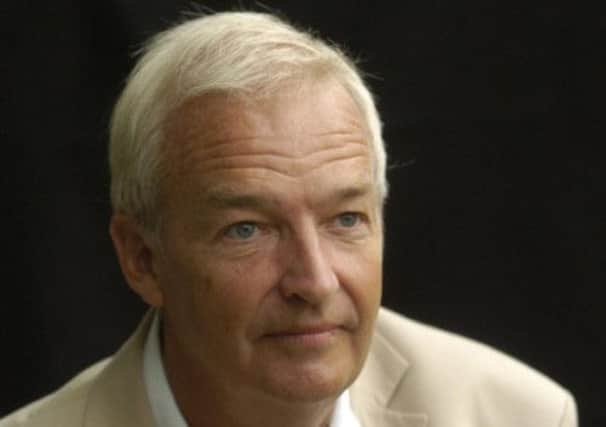Jon Snow attacks fellow cyclists’ bad behaviour


The campaigner and Channel 4 News anchor urged them to improve their own safety ahead of a major conference on the subject in Glasgow this week, which he will chair.
Deaths and serious injuries among cyclists in Scotland increased last year for the second year in a row to 176, with deaths up two to nine.
Advertisement
Hide AdAdvertisement
Hide AdSnow, who is also president of the Cyclists’ Touring Club (CTC), described himself as a “jobbing cyclist” who travels to and from work by bicycle.
He told Scotland on Sunday: “Cyclists could behave better. At the moment we behave extremely badly, and I don’t know if there are any cyclists who haven’t gone through a red light. You do not get that on the Continent.”
Cycle path developers Sustrans Scotland said there was less conflict on the Continent between cyclists and motorists as cyclists were largely kept apart from other traffic.
John Lauder, director of cycle paths developer Sustrans Scotland, said: “In Europe, cyclists and car drivers are segregated for much of the time, which helps.”
Amsterdam-based photographer Andrew Kerr said cycling in Britain and the Netherlands were “worlds apart”. He added: “There are cyclists here who jump red lights but that is by far the exception rather than the rule.”
Snow also called for congestion charging to be introduced in cities across Britain, including Glasgow and Edinburgh, and for segregated lanes on city streets to protect cyclists from other vehicles.
“So many people are cycling, especially in urban areas, that a radical rethink is required.
“Further congestion charging needs to be introduced in every city in Britain to reduce the number of single-occupancy cars and make more space for cycling,” he said.
Advertisement
Hide AdAdvertisement
Hide Ad“The proof of congestion charging is in London, and if used properly, wise Scots would be foolish to reject it.”
He said the key was to keep raising charges, which had not happened in London where drivers now “took it in their stride”.
Snow’s call follows think tank Reform Scotland proposing “pay as you drive” road pricing to reduce congestion and emissions. Last month, the Institution of Civil Engineers Scotland also said road tolls could help pay for the upkeep of highways.
Lauder applauded Snow’s comments as welcome and timely. “As a noted cycling commuter using the streets of London on a daily basis he is in a good position to comment on high-quality and safe infrastructure for cycling, and also reducing the number of vehicles on city streets through congestion charging.
“Away from constructing and retro-fitting our streets there is much to commend a thorough investigation of congestion charging by local authorities and Transport Scotland.”
The Scottish Government and the country’s two largest cities rejected congestion charging.
A spokeswoman for the Transport Scotland agency said: “Ministers have no plans to introduce road charging now or any time in the future.”
Glasgow City Council said: “The council’s transport policy does not currently include the introduction of congestion charging.
Advertisement
Hide AdAdvertisement
Hide Ad“The policy is, where possible, to use trip-end parking charges to manage demand and reduce commuting journeys to the city centre by private car.”
Transport Scotland pointed to Sustrans’ community links programme as the “perfect funding stream” for councils planning segregated cycle lanes.
Its spokeswoman said the Scottish Government’s extra £20m funding over the next two years included £3.6m for improvements to Leith Walk, which will have segregated sections.
Edinburgh City Council, which suffered a massive defeat in a local referendum eight years ago over charging motorists to drive into the capital, said it had “no plans” to try again.
Transport vice-convener Jim Orr, who is also the council’s “cycling champion”, said: “In 2014-15 we will spend a record 7 per cent of our transport capital budget on cycling.”
A Glasgow City Council spokesman said: “A cycling infrastructure strategy is being developed to identify key gaps in the network.”
Ian Aitken, chief executive of official umbrella body Cycling Scotland, which is organising the conference at the Sir Chris Hoy Velodrome on Friday, said: “High quality segregated cycle-ways that make people feel safe are crucial, but this is dependent on increased funding commitments from national and local government.”